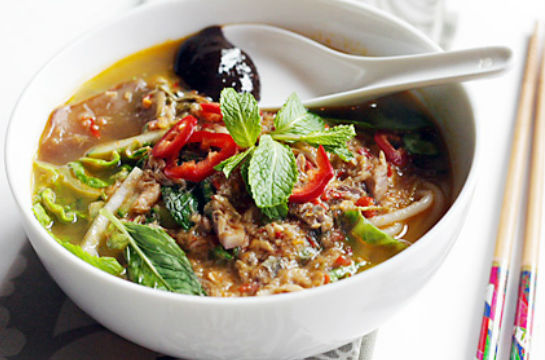Here’s what’s up in the weird, wonderful world of Culinary Diplomacy.
- On the power of Culinary Diplomacy: A dinner non-invite can be just as powerful, if not more, than an invitation. The New York Times reported that at the E.U.-Russia summit, a gathering that usually lasts for 2 days and this year was shortened to just 3 hours, Russian President Vladimir Putin wasn’t even invited to dinner. European concerns about the situations in Syria and Ukraine have significantly chilled relations between the E.U. and Russia, so much so that European diplomats do not see fit to treat Putin to a meal. A valuable Culinary Diplomacy lesson: while commensality is powerful, refusal to dine with someone may send a stronger message. But hey, Belgian food is pretty good, so maybe Putin can just go out for some Stoemp and a Duvel. If he reads HuffPo Taste, he might have seen this recent unexpected paean to Belgian cuisine.

Belgian waffle, AKA gaufre de Liège, AKA Luikse Wafel (picture courtesy of HuffPo Taste) - Speaking of delicious cuisines in the news, according to Food Navigator, a food trends website, has officially announced that Malaysian cuisine will be one of the top 3 trendy cuisines in 2014. With its mixed ethnic background, Malaysia presents a perfect blend of savory, spicy, earthy, and aromatic flavors. Malaysia is a one of a few countries with a government-sponsored Culinary Diplomacy program, called the Malaysian Kitchen Programme, run by the Malaysia External Trade Development Corporation (MATrade). The time is ripe for MATrade to expand its program and jump on the trend. (See here for more on the program and some recipes, including the one for Laksa Assam)

Assam Laksa, a staple dish especially in Panang. (Photo courtesy of malaysiakitchen.my) - I heard a great interview on Chicago Public Radio with David Broza, an Israeli musician who just released a new album, East Jerusalem, West Jerusalem. Produced by singer-songwriter Steve Earle and recorded with a group of Israeli and Palestinian musicians in a studio in East Jerusalem, the album is Broza’s attempt to cross social and political divides using music. In the interview, Broza speaks at length about how he used food to bring these musicians together (start listening around minute 8:45). Broza had this to say:
“As a result of just breaking bread we look at each others eyes and we talk, and just niceties, but those niceties always lead to camaraderie, that camaraderie opens you up to testing the waters a little further, saying ‘Hey, can we play a song together, how about if you bring your oud, or your qanun, or your violin, and you play on one of my songs. How about if we do it together?’”
Also good is the section starting around 6:40, when Broza talks about how he lured the Israeli musicians to East Jerusalem with the promise of banquets, attended by Israelis and Palestinians alike. This is a wonderful example of using two means of cultural diplomacy, cuisine and music, to bring people together from opposing sides of a conflict. A really nice story.
Okay, that’s it. Don’t hesitate to tweet at me @culinarydiplo or email me at culinarydiplomacy [at] gmail [dot] com with stories, news, thoughts, submissions, or ideas on the field!
Sam